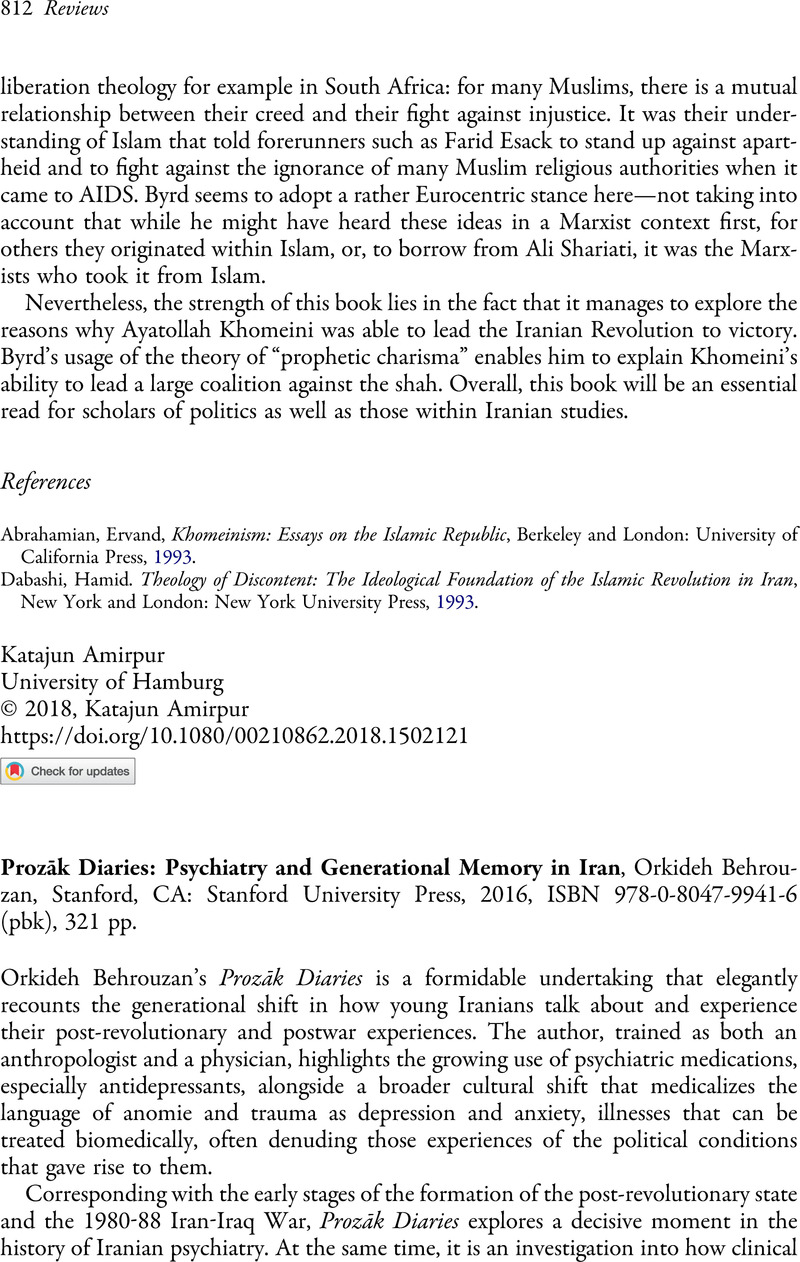No CrossRef data available.
Article contents
Prozāk Diaries: Psychiatry and Generational Memory in Iran, Orkideh Behrouzan, Stanford, CA: Stanford University Press, 2016, ISBN 978-0-8047-9941-6 (pbk), 321 pp.
Published online by Cambridge University Press: 01 January 2022
Abstract
An abstract is not available for this content so a preview has been provided. Please use the Get access link above for information on how to access this content.

- Type
- Reviews
- Information
- Copyright
- Copyright © Arzoo Osanloo 2018
References
Das, Veena. “Language and Body: Transactions in the Construction of Pain,” Daedalus 125, no. 1 (1996): 67–91.Google Scholar
Fischer, Michael M. J. Iran: From Religious Dispute to Revolution, Cambridge, MA: Harvard University Press, 1980.Google Scholar
Good, Byron J., Good, Mary-Jo DelVecchio, and Moradi, Robert, “The Interpretation of Iranian Depressive Illness and Dysphoric Affect,” in Kleinman, Arthur and Good, Byron J. (eds.), Culture and Depression Studies in the Anthropology and Cross-Cultural Psychiatry of Affect and Disorder, Berkeley: University of California Press, 1986, pp. 369–428.Google Scholar


